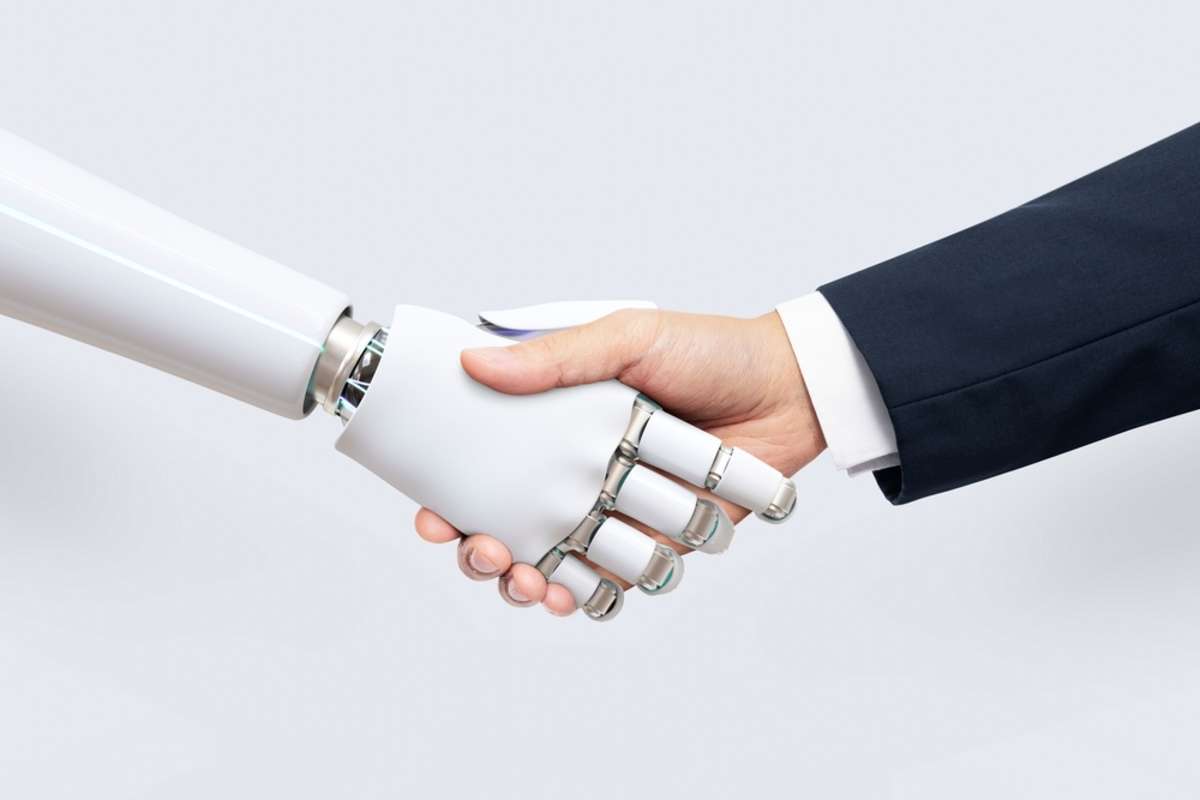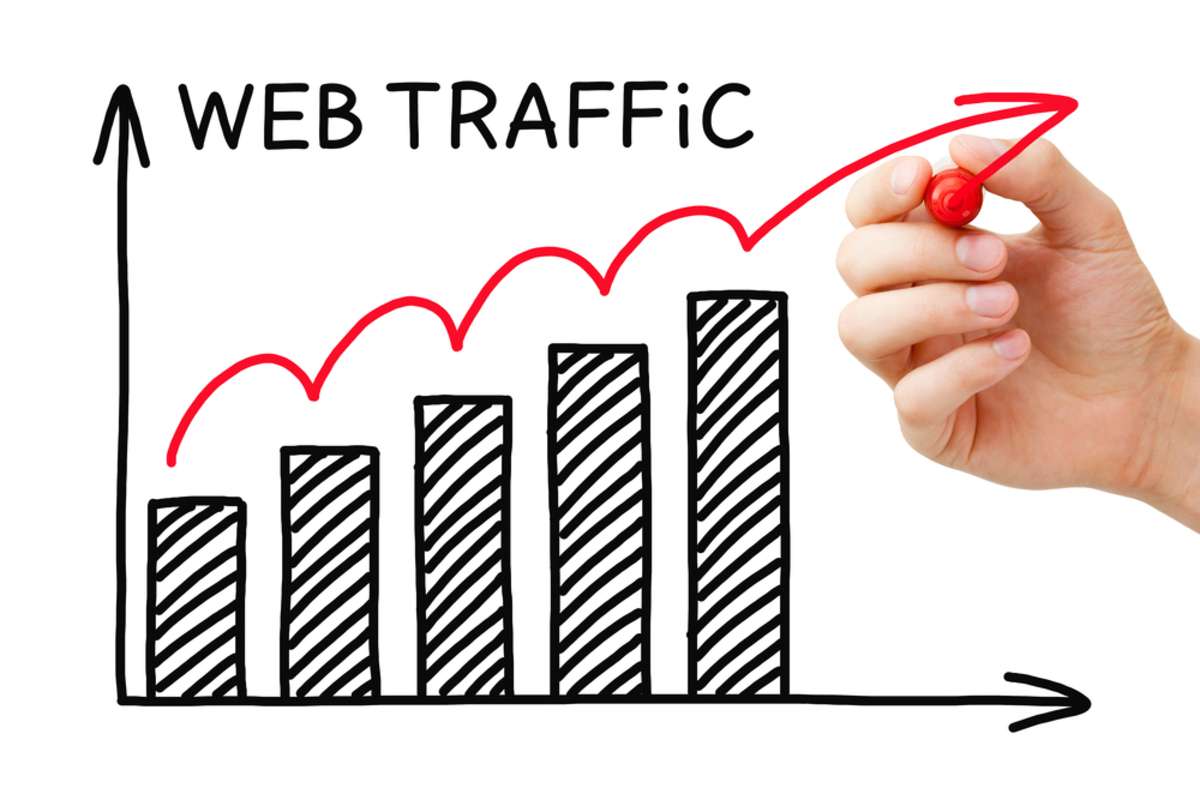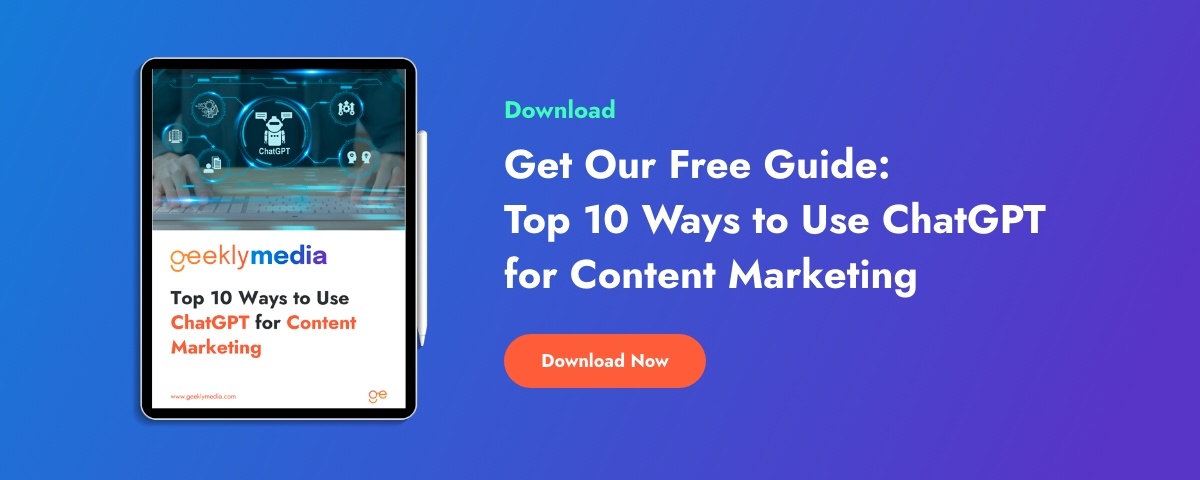
The Balance Between AI and Humans for Successful Inbound Marketing
Listen to the article
The Balance Between AI and Humans for Successful Inbound Marketing
Integrating AI into your marketing efforts starts with a clear understanding of its capabilities and limitations. Recognizing that AI (artificial intelligence) excels at quickly generating large volumes of content and providing data-driven insights allows marketers to capitalize on these strengths. AI tools can be used to automate repetitive tasks, such as content generation for blog posts or social media updates, freeing up valuable time for human marketers to focus on more strategic activities.
However, it's important to remember that AI is a tool, not a replacement for human creativity and critical thinking. So, what's the ideal balance of human-AI collaboration for successful inbound marketing?
As AI continues to evolve, so must the balance — but today, we'll start with the existing landscape and a good place to begin when incorporating AI tools into your marketing strategies.
How Tools Create AI-Generated Content
Without getting into the technicals (because that's over even our heads), the way AI creates content is amazing. It takes your input (what you want to write about and the parameters you need the tool to hit to create the content you need), then scrapes the internet to pull in the relevant information it needs to generate an accurate output.
It does all of this in a matter of seconds.
The Missing Human Element
However, what it "can't" do (no matter how long you try to get ChatGPT or any AI tool to finesse the text) is add the human, personal element that makes that piece of content "yours." That personal element is what search engines like Google look for to classify your content as unique and helpful.
This means that without the human element, you must add to any AI-generated content, you put your content at risk of being passed over (or negatively scored) on search engines because it will read like any other AI-generated content on the same topic. So, as more marketers (whether roofing companies, property management businesses, or real estate professionals) continue generating content about the same topics, the internet will be full of content that is similar in tone, and flow, talking points.
The crucial element to help your content stand out from others in your industry is . . . you!
 Striking the Balance
Striking the Balance
Finding the balance between AI and human involvement in marketing strategies is unique to each company. Meaning, the balance that works best for your marketing success may be different than a similar company in your market.
However, some fundamental benchmarks can be applied to incorporate AI-generated content into inbound marketing efforts successfully.
What AI Tools Can Do for Digital Content Marketing
There are plenty of ways to incorporate AI tools into your content marketing strategies. These are a few of the things tools like ChatGPT and others do well!
-
Create mass amounts of content quickly: AI tools excel at generating large volumes of content within a short period, saving time and resources for marketers.
-
Deliver ideas for topics: Not sure what to write about? AI tools can provide valuable insights and suggestions for content topics, helping marketers overcome creative blocks and discover new angles for their content.
-
Analysis and optimization: AI can analyze data and provide optimization recommendations, enabling marketers to refine their content and improve its performance.
Utilizing artificial intelligence in these ways can benefit your marketing strategies and help you generate more traffic and leads for business growth!
The Human Contribution
While AI can automate certain aspects of content creation, there are essential tasks that require human involvement for successful inbound marketing.
-
Content strategy: Developing a comprehensive content strategy involves understanding the target audience, market trends, and business objectives. Where even the best AI tools fall short in this area, human strategists can analyze data, identify gaps, and create a cohesive plan that guides content creation efforts.
-
Strategic thinking: AI tools are limited in their ability to think strategically and make informed decisions based on broader marketing goals. However, humans can evaluate the overall marketing strategy, align it with content objectives, and adapt to the ever-changing digital landscape.
-
Adding emotional intelligence to text: Emotional intelligence is a vital component of effective inbound marketing. This is where the "you" of what makes your content unique comes into play. Humans have the ability to infuse empathy, creativity, and storytelling into their writing, establishing a genuine connection with readers.
-
Review and editing: While AI tools can generate content quickly, human editors are crucial to ensure that the content meets desired tone, style, and quality standards. They can also catch nuances of language and context that AI might miss.
Relying too much on AI to do your marketing work for you can leave you with bland content that doesn't rank (or worse) negatively impacts your spot on search engine results pages (SERPs).
Small Businesses Must Embrace Collaboration With AI
To leverage the full potential of AI in inbound marketing, a collaborative approach is essential. Rather than perceiving AI as a threat to human jobs or the missing link in generating the traffic you need, it should be seen as a valuable tool that enhances productivity and efficiency.
Human marketers can use AI-generated insights and suggestions to inform their decision-making process. By combining AI's analytical capabilities with humans' creativity and intuition, marketers can create optimized content that resonates with the target audience and stands out from the competition.
The Collaborative Approach
To achieve a successful balance, marketers should adopt a collaborative approach that harnesses the strengths of both AI and humans. Here's one way to collaborate with the AI tools that work best for your business!
1. Define Clear Roles
Clearly define the roles of AI and human marketers within the content creation process. Determine which tasks can be automated and delegated to AI and which tasks require human creativity, critical thinking, and emotional intelligence.
2. Develop the Content Strategy
Human marketers should take the lead in developing a comprehensive content strategy that aligns with the company's goals and target audience. This involves understanding the buyer persona, conducting market research, and identifying content gaps that AI-generated content may not capture.
3. Use AI-Generated Content as a Starting Point
AI-generated content can serve as a starting point or a source of inspiration for human marketers. They can use the generated content as a foundation and build upon it to add their unique insights, perspectives, and personal touch.
4. Review and Refine
Human involvement is crucial in reviewing and refining AI-generated content. Human editors can ensure that the content meets quality standards, addresses the target audience's needs, and maintains the brand voice and tone.
Additionally, by infusing emotional intelligence, storytelling, and personal experiences, they can create content that resonates with the audience, evokes emotions, and establishes a connection.
 5. Apply Data-driven Optimization
5. Apply Data-driven Optimization
Utilize AI-generated analytics and insights to make data-driven optimizations. Human marketers can interpret the data, identify patterns and trends, and make strategic decisions to enhance content performance and engagement.
6. Continuously Learn and Adapt
Inbound marketing is a dynamic field, and staying updated with the latest trends and consumer preferences is essential. Human marketers should continuously learn, adapt, and refine their strategies to stay ahead in the ever-evolving digital landscape.
Optimize Your Inbound Marketing Strategy With the Right Balance
The balance between AI and human involvement is crucial for successful inbound marketing. AI tools offer efficiency, scalability, and data-driven insights, while human marketers bring creativity, emotional intelligence, and strategic thinking to the table. By combining the strengths of AI and humans and adopting a collaborative approach, marketers can create content that is not only optimized and informative but also resonates with the target audience on a personal level!
Learn more about using ChatGPT with our free resource, "Top 10 Ways to Use ChatGPT for Content Marketing."


-1.png)

